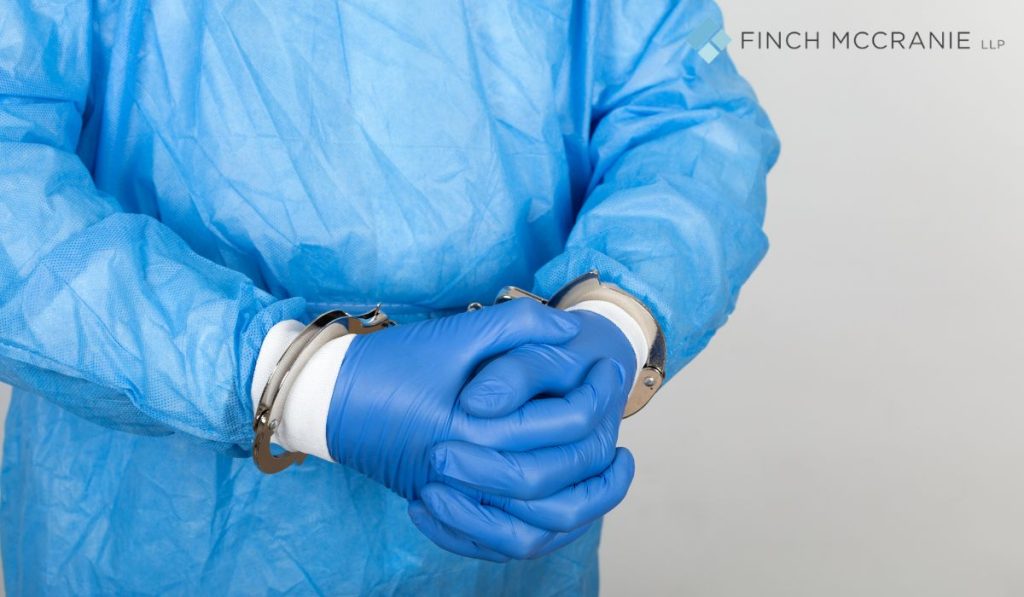In healthcare, trust between patients and medical professionals is paramount.
Patients place their well-being in the hands of doctors, nurses, and other healthcare providers, expecting to receive the highest level of care.
However, there are instances where medical malpractice can occur, leading to adverse consequences for patients.
This article aims to guide you on recognizing medical malpractice in your healthcare.
We will cover the signs, the legal aspects, and what steps to take if you suspect you’ve been a victim of medical malpractice.
Understanding Medical Malpractice
Medical malpractice is when a healthcare professional’s actions or omissions deviate from the standard of care, harming the patient.
Recognizing medical malpractice begins with understanding what constitutes a breach of that standard.
Common Indicators of Medical Malpractice
- Unexplained Complications: It might be a sign of malpractice if you experience unexpected complications after a medical procedure or treatment.
- Misdiagnosis or Delayed Diagnosis: Misdiagnosis or delayed diagnoses can lead to the progression of a disease or condition, causing unnecessary harm.
- Surgical Errors: Surgical mistakes, such as wrong-site surgery or instruments left inside the body, are clear indications of malpractice.
- Inadequate Informed Consent: If you were not adequately informed about the risks and benefits of a procedure, you might be a victim of medical malpractice.
Legal Aspects of Medical Malpractice
Understanding the legal aspects of medical malpractice is crucial if you suspect you’ve been a victim.
- Duty of Care: Healthcare professionals owe their patients a duty of care, meaning they must provide treatment consistent with accepted standards.
- Breach of Duty: A breach of duty occurs when a healthcare professional’s actions fall below the standard of care.
- Causation: It must be proven that the breach of duty directly caused harm to the patient.
- Damages: To file a medical malpractice claim, you must have suffered physical, emotional, or financial injuries.

Taking Action
If you suspect you’re a victim of medical malpractice, it’s essential to take appropriate steps.
- Seek a Second Opinion: Consulting another healthcare professional can confirm whether medical malpractice occurred.
- Document Everything: Keep detailed records of your treatment, including medical records, prescriptions, and communications with healthcare providers.
- Consult an Attorney: A medical malpractice attorney can guide you on the legal aspects and help you pursue a claim.
- File a Complaint: Contact your state’s medical licensing board or the hospital where the malpractice occurred.
The Importance of Communication
Effective communication is critical in recognizing and addressing medical malpractice.
- Ask Questions: Don’t hesitate to ask your healthcare provider about your treatment plan and any concerns you may have.
- Express Your Concerns: If something doesn’t feel right, speak up. Your healthcare provider should be willing to address your worries.
- Trust Your Instincts: Your health is your top priority. If you sense something is wrong, take action.
Conclusion
Recognizing medical malpractice in your healthcare is crucial to ensure your well-being and the quality of care you receive.
By understanding the standard indicators and legal aspects and taking the necessary steps, you can protect yourself from the adverse consequences of medical malpractice.
Frequently Asked Questions
What should I do if I suspect medical malpractice?
If you suspect medical malpractice, seek a second opinion from another healthcare professional and consult a malpractice attorney.
Are there time limits for filing a medical malpractice claim?
Yes, there are statutes of limitations for filing a medical malpractice claim. It varies by state, so it’s essential to consult an attorney promptly.
Can medical malpractice occur in non-surgical treatments?
Medical malpractice can occur in various healthcare settings, including non-surgical treatments, such as misdiagnoses or medication errors.
How can I ensure I have informed consent for a medical procedure?
To ensure informed consent, your healthcare provider should thoroughly explain the risks and benefits of the procedure and answer any questions you may have.
What damages can I claim in a medical malpractice lawsuit?
In a medical malpractice lawsuit, you can claim physical, emotional, and financial damages, including medical expenses, lost wages, and pain and suffering.

What is the role of expert witnesses in a medical malpractice case?
Expert witnesses are often called upon to provide professional opinions about the standard of care and whether it was breached in a medical malpractice case. Their testimony can be crucial in proving your case.
What is the difference between medical malpractice and a bad outcome?
Not all bad medical outcomes are due to medical malpractice. Medical malpractice occurs when a healthcare professional’s actions fall below the standard of care, resulting in harm. A lousy product can occur even when the standard of care is met, as some medical conditions are inherently unpredictable.
Can I file a medical malpractice claim for a cosmetic procedure?
Yes, medical malpractice claims can be filed for cosmetic procedures. Healthcare providers, including plastic surgeons, must provide care consistent with accepted standards. You may have a valid claim if you believe the bar was breached and you suffered harm.
Is there a cap on my compensation in a medical malpractice case?
Some states have caps on the compensation you can receive in a medical malpractice case. However, these caps vary widely from state to state, so it’s essential to consult with an attorney to understand the limitations in your jurisdiction.
How long does it typically take to resolve a medical malpractice case?
The duration of a medical malpractice case varies. It can take several months to several years, depending on factors like the case’s complexity, the willingness to settle, and the court’s schedule. An experienced attorney can provide a more accurate estimate based on your circumstances.
 Trial Attorney Blog
Trial Attorney Blog

